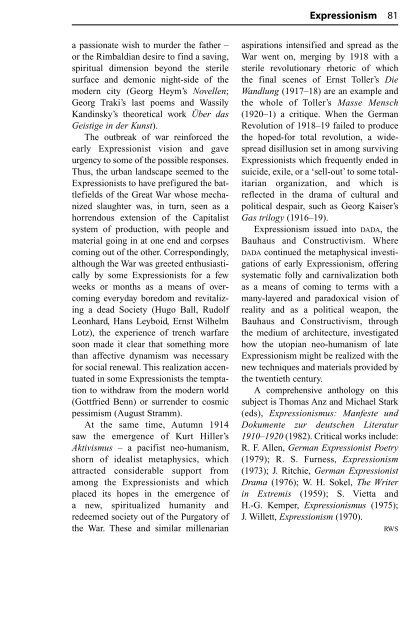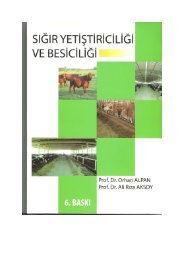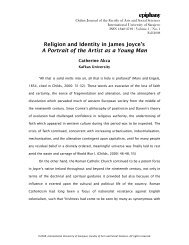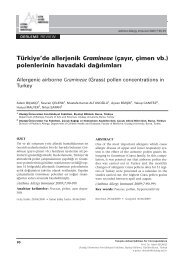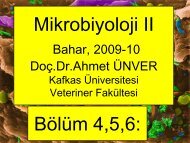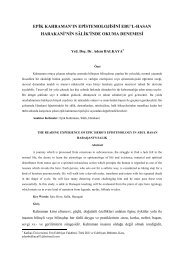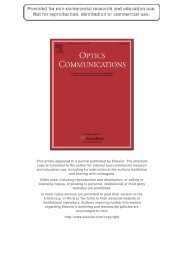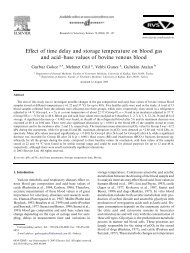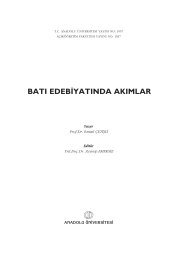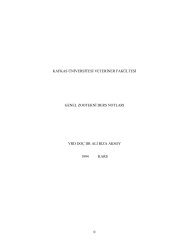The Routledge Dictionary of Literary Terms
The Routledge Dictionary of Literary Terms
The Routledge Dictionary of Literary Terms
You also want an ePaper? Increase the reach of your titles
YUMPU automatically turns print PDFs into web optimized ePapers that Google loves.
a passionate wish to murder the father –<br />
or the Rimbaldian desire to find a saving,<br />
spiritual dimension beyond the sterile<br />
surface and demonic night-side <strong>of</strong> the<br />
modern city (Georg Heym’s Novellen;<br />
Georg Traki’s last poems and Wassily<br />
Kandinsky’s theoretical work Über das<br />
Geistige in der Kunst).<br />
<strong>The</strong> outbreak <strong>of</strong> war reinforced the<br />
early Expressionist vision and gave<br />
urgency to some <strong>of</strong> the possible responses.<br />
Thus, the urban landscape seemed to the<br />
Expressionists to have prefigured the battlefields<br />
<strong>of</strong> the Great War whose mechanized<br />
slaughter was, in turn, seen as a<br />
horrendous extension <strong>of</strong> the Capitalist<br />
system <strong>of</strong> production, with people and<br />
material going in at one end and corpses<br />
coming out <strong>of</strong> the other. Correspondingly,<br />
although the War was greeted enthusiastically<br />
by some Expressionists for a few<br />
weeks or months as a means <strong>of</strong> overcoming<br />
everyday boredom and revitalizing<br />
a dead Society (Hugo Ball, Rudolf<br />
Leonhard, Hans Leyboid, Ernst Wilhelm<br />
Lotz), the experience <strong>of</strong> trench warfare<br />
soon made it clear that something more<br />
than affective dynamism was necessary<br />
for social renewal. This realization accentuated<br />
in some Expressionists the temptation<br />
to withdraw from the modern world<br />
(Gottfried Benn) or surrender to cosmic<br />
pessimism (August Stramm).<br />
At the same time, Autumn 1914<br />
saw the emergence <strong>of</strong> Kurt Hiller’s<br />
Aktivismus – a pacifist neo-humanism,<br />
shorn <strong>of</strong> idealist metaphysics, which<br />
attracted considerable support from<br />
among the Expressionists and which<br />
placed its hopes in the emergence <strong>of</strong><br />
a new, spiritualized humanity and<br />
redeemed society out <strong>of</strong> the Purgatory <strong>of</strong><br />
the War. <strong>The</strong>se and similar millenarian<br />
Expressionism 81<br />
aspirations intensified and spread as the<br />
War went on, merging by 1918 with a<br />
sterile revolutionary rhetoric <strong>of</strong> which<br />
the final scenes <strong>of</strong> Ernst Toller’s Die<br />
Wandlung (1917–18) are an example and<br />
the whole <strong>of</strong> Toller’s Masse Mensch<br />
(1920–1) a critique. When the German<br />
Revolution <strong>of</strong> 1918–19 failed to produce<br />
the hoped-for total revolution, a widespread<br />
disillusion set in among surviving<br />
Expressionists which frequently ended in<br />
suicide, exile, or a ‘sell-out’ to some totalitarian<br />
organization, and which is<br />
reflected in the drama <strong>of</strong> cultural and<br />
political despair, such as Georg Kaiser’s<br />
Gas trilogy (1916–19).<br />
Expressionism issued into DADA, the<br />
Bauhaus and Constructivism. Where<br />
DADA continued the metaphysical investigations<br />
<strong>of</strong> early Expressionism, <strong>of</strong>fering<br />
systematic folly and carnivalization both<br />
as a means <strong>of</strong> coming to terms with a<br />
many-layered and paradoxical vision <strong>of</strong><br />
reality and as a political weapon, the<br />
Bauhaus and Constructivism, through<br />
the medium <strong>of</strong> architecture, investigated<br />
how the utopian neo-humanism <strong>of</strong> late<br />
Expressionism might be realized with the<br />
new techniques and materials provided by<br />
the twentieth century.<br />
A comprehensive anthology on this<br />
subject is Thomas Anz and Michael Stark<br />
(eds), Expressionismus: Manfeste und<br />
Dokumente zur deutschen Literatur<br />
1910–1920 (1982). Critical works include:<br />
R. F. Allen, German Expressionist Poetry<br />
(1979); R. S. Furness, Expressionism<br />
(1973); J. Ritchie, German Expressionist<br />
Drama (1976); W. H. Sokel, <strong>The</strong> Writer<br />
in Extremis (1959); S. Vietta and<br />
H.-G. Kemper, Expressionismus (1975);<br />
J. Willett, Expressionism (1970).<br />
RWS


